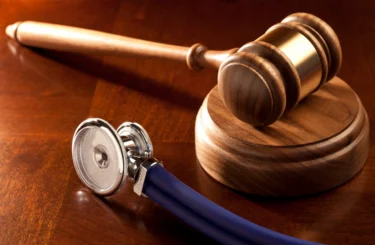Medical Lab Errors: Malpractice or General Negligence?
An estimated 70 percent of medical decisions rely on diagnostic testing. Unfortunately, medical lab errors are a leading cause of malpractice, causing an estimated 250,000 deaths each year. Lab errors can lead to incorrect, delayed, and missed diagnoses and direct patient harm.
A fundamental question arising from lab error cases involves the legal cause of action. While medical malpractice traditionally only arises in the context of a physician-patient relationship, lab technicians may be sued for malpractice in certain scenarios. In other circumstances, their conduct falls under the category of general negligence. Each cause of action carries a different standard of proof, and filing appropriately can be instrumental to the case’s success.
The Difference Between General Negligence and Medical Malpractice
The key difference between medical malpractice and general negligence is that each holds the defendant to different standards. In an ordinary negligence case, the defendant’s actions are compared to those of a “reasonable person.” Medical professionals are also expected to behave reasonably, but their conduct is evaluated according to a professional standard of care.
For this reason, proving medical malpractice requires the expert testimony of a physician practicing in the same field as the defendant. The expert must identify the standard of care, attest to the defendant’s breach, and detail how the breach caused the patient harm. If a medical malpractice claim is not filed with an expert affidavit, it will be dismissed. By contrast, general negligence cases often rely on the testimony of experts, but there is no legal requirement to include expert testimony.
Depending on the state, the statute of limitations may also differ. For example, the Michigan statute of limitations is two years for a medical malpractice case versus three years for general negligence.
The Availability of a Medical Malpractice Cause of Action
Courts have defined medical malpractice as “a negligent act or omission . . . that constitutes medical treatment or bears a substantial relationship to the rendition of medical treatment by a licensed physician.” While lab technicians are not providing medical treatment, their competence in administering test results often influences the treating physician’s care. Consider that examples of lab technician malpractice include:
- Contaminating test samples.
- Mixing up labels.
- Inaccurately recording information.
- Conducting the wrong test.
- Losing test results.
If a lab technician mixes up the samples of a patient with cancer and a patient without cancer, both patients’ physicians cannot offer a correct diagnosis. As a result, the patient with cancer will likely miss timely and potentially life-saving treatment, while the other will be subjected to invasive treatment protocols that may cause new or worsening harm. In this way, certain lab errors can give rise to inadvertent malpractice.
Courts have generally determined that lab errors influencing diagnostic decisions fall under the purview of medical malpractice. By providing the wrong information, the lab’s failure compromises the physician’s ability to adhere to the professional standard of care. Expert testimony is still required to identify the standard of care, attest that it was breached, and connect the breach to the patient’s harm.
However, cases featuring a more direct relationship between lab error and patient harm have been found to fall under the category of general negligence. Examples include claims that a lab provided tainted blood for a transfusion or a diseased organ for a transplant. Because the practice of medicine is not directly implicated in these contexts, they are less complex and do not require expert testimony to prove.
What It Means for Patients
In our decades of experience representing injured patients, we have found that every case is unique. For this reason, we collect as much information as possible for our clients and take time to craft a legal strategy covering all possible bases.
If you suffer damages after a lab error, you do not have to go through the recovery process alone. Our attorneys are available to support you in this trying time and help you best determine your next steps. Call us today for a free consultation.
Dina Zalewski
Dina Zalewski is an associate in Sommers Schwartz’s Medical Malpractice Litigation and Personal Litigation groups. From a young age, she knew she wanted to be a lawyer and, because her family was directly affected by a healthcare provider’s medical negligence, joining the medical malpractice team here at Sommers Schwartz was a natural fit.





